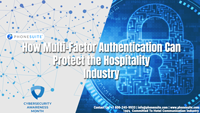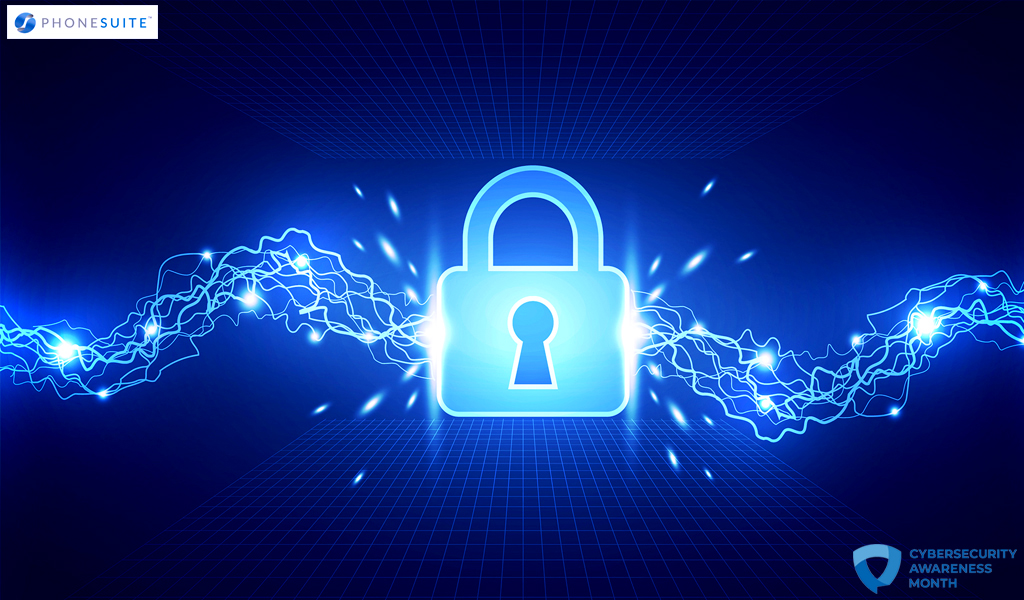
Multi-Factor Authentication (MFA): What it Is & How It Can Help the Hospitality Industry
The implementation of Multi-Factor Authentication (MFA) in the hospitality industry is critical in ensuring the security and privacy of sensitive customer information, especially in today’s digital era. MFA, a vital security measure, requires users to validate their identities using multiple credentials, beyond just a password. The combination of several such authentication factors significantly minimizes the risk of unauthorized access and protects confidential data. In the hospitality sector, where transactions routinely consist of personal data such as credit card numbers and passport details, adopting MFA helps safeguard information, thereby enhancing trustworthiness and reinforcing brand reputation.
By prioritizing security via MFA, hotels, restaurants, and other hospitality businesses can send a powerful message to their clientele about their commitment to providing a safe, secure, and exceptional experience.
Understand the Different Types of MFA and How They Can Benefit Your Business
As a business owner, it’s essential to comprehend the various types of multifactor authentication (MFA) methods and their respective advantages for safeguarding your company. MFA refers to the practice of utilizing two or more distinct types of authentication factors to verify a user’s identity, significantly reducing the risk of unauthorized access to sensitive data and resources.
In recent years, the hospitality industry has seen a surge in data breaches and cyber attacks. With the increasing dependence on technology, hotels have become vulnerable to security threats that could lead to data theft, unauthorized access, and financial losses. To prevent these potential security breaches, the hospitality industry has begun to adopt multi-factor authentication (MFA) as an effective security solution.
MFA is a security measure that requires users to provide two or more authentication factors to verify their identity. These factors can include something the user knows (such as a password), something the user has (such as a smart card), and something the user is (such as a biometric). MFA can significantly reduce the risk of unauthorized access to sensitive information and protect the reputation of a hotel brand.
Advantages of Using MFA in the Hospitality Industry:
Enhanced Security:
MFA provides an additional layer of security that goes beyond a simple username and password. It makes it much harder for cybercriminals to gain access to sensitive data and systems, even if they manage to obtain login credentials.
Protection of Personal Information:
Hotels collect a vast amount of personal information from guests, including credit card details, passport numbers, and addresses. MFA can prevent this sensitive data from falling into the wrong hands and safeguard guests’ privacy.
Compliance With Regulations:
The hospitality industry is subject to various data protection laws, including the General Data Protection Regulation (GDPR) and the Payment Card Industry Data Security Standard (PCI DSS). MFA can help hotels comply with these regulations and avoid hefty fines.
Convenient & User-Friendly:
MFA is becoming more user-friendly, with many solutions requiring only a single tap or facial recognition to authenticate users. This can make the login process more convenient and reduce the risk of user error.
Protects Against Insider Threats:
MFA can prevent employees from accessing sensitive information or systems that they do not need to do their job. This reduces the risk of insider threats, such as data theft or sabotage.
There are several types of multi-factor authentication (MFA), each with its own unique set of advantages and disadvantages.
Here are the Most Common Types of MFA:
Knowledge-Based Factors
Knowledge-based factors require users to memorize and provide information unique to them, such as passwords or personal identification numbers (PINs).
Possession-Based Factors
Possession-based factors entail the use of physical items, like smart cards or mobile devices, to confirm user identities.
Inherence-Based Factors
Inherence-based factors involve biometric authentication techniques, such as fingerprint or facial recognition, which rely on the unique physical characteristics of each user. By incorporating MFA into your business’s security strategy, you can vastly enhance the protection of your organization’s valuable assets and ensure the trust and confidence of your various stakeholders.
Password + Token:
This is the most basic form of MFA. It requires the user to enter a password (something they know) and a token (something they have), such as a smart card or USB key. The user must have both the correct password and the token to access the system or data. This method is relatively easy to implement, but it can be inconvenient for users who must carry a token with them at all times.
One-Time Password (OTP):
This method uses a unique, time-sensitive code that is sent to the user’s mobile phone or email address. The user enters the code in addition to their password to authenticate. This method is more secure than password-only authentication, but it can be inconvenient if the user does not have access to their phone or email.
Biometric Authentication:
This method uses a physical characteristic of the user, such as a fingerprint, face, or iris, as the authentication factor. Biometric authentication is highly secure, as it is difficult to replicate a person’s unique physical characteristics. However, it can be more costly to implement and may require specialized hardware or software.
Behavioral Authentication:
This method uses behavioral biometrics, such as typing speed or mouse movements, to authenticate users. Behavioral authentication is highly secure, as it is difficult to replicate a user’s behavior. However, it can be difficult to implement and may require specialized software.
Location-Based Authentication:
This method uses the user’s location as an authentication factor. For example, the system may only allow access from a specific geographic location, such as the hotel premises. This method is highly secure, but it can be inconvenient for users who need to access the system from different locations.
Smart Card Authentication:
This method uses a smart card that contains a digital certificate. The user inserts the card into a card reader, enters their PIN, and then the system verifies the digital certificate. This method is highly secure, but it can be more costly to implement and may require specialized hardware.
An Effective Security Solution
Multi-factor authentication (MFA) is a security solution that can prevent cybercriminals from gaining unauthorized access to sensitive data and systems. Unlike traditional authentication methods, which only require a single factor, MFA uses two or more factors to verify a user’s identity. These factors can include something the user knows (such as a password), something the user has (such as a smart card), and something the user is (such as a biometric).
Here are some additional pieces of information about MFA:
- MFA can reduce the risk of password-related breaches: Passwords are the weakest link in traditional authentication methods, as they can be easily guessed, stolen, or hacked. MFA can make it much harder for cybercriminals to gain access to systems or data, even if they manage to obtain a user’s password.
- MFA can be used for remote access: Many employees in the hospitality industry work remotely or access sensitive information from mobile devices. MFA can provide an additional layer of security for these users, ensuring that only authorized personnel can access the data.
- MFA can be customized: MFA solutions can be tailored to meet the specific needs of a hotel or hospitality business. For example, a hotel may require guests to provide a biometric (such as a fingerprint) in addition to their room key to access their room.
- MFA can be used for a variety of applications: MFA can be used to protect a wide range of applications and services, including email, cloud storage, and payment systems. This makes it a versatile security solution that can be applied to various aspects of a hospitality business.
- MFA can be integrated with other security solutions: MFA can be combined with other security solutions, such as firewalls and intrusion detection systems, to provide a comprehensive security strategy. This can help hotels to detect and prevent security threats before they cause damage.
Newer & More Innovative Approaches to MFA
In addition to the types of MFA mentioned above, there are also some newer and more innovative approaches to MFA that are emerging in the hospitality industry. Here are a few examples:
QR Code Authentication:
- This is a simple and cost-effective MFA method that involves the use of a QR code. The user scans the QR code using their smartphone, which then generates a one-time password that is entered along with the user’s regular password. This method is highly secure, as the one-time password is only valid for a short period of time.
Push Notification Authentication:
- This method involves the use of push notifications to authenticate the user. When the user attempts to log in, a push notification is sent to their mobile device. The user must then approve the login attempt via the push notification, which eliminates the need for passwords or tokens. This method is convenient for users and highly secure.
Voice Recognition Authentication:
- This method uses the user’s voice as the authentication factor. The user speaks a passphrase or a series of random words, which are then compared to the user’s recorded voice to authenticate their identity. This method is highly secure and easy to use, as it does not require any additional hardware or software.
Adaptive Authentication:
- This method uses a combination of several authentication factors and adapts to the user’s behavior over time. The system monitors the user’s behavior, such as their location, device, and login history, and adjusts the authentication requirements accordingly. This method is highly secure and convenient for users, as it eliminates the need for constant re-authentication.
There are many advantages to using MFA in the hospitality industry, including:
Enhanced Security:
MFA provides an additional layer of security beyond traditional username and password authentication, which can be easily compromised.
Improved Customer Experience:
By using innovative MFA methods, such as QR code authentication or push notifications, hotels can provide a more convenient and seamless experience for their guests.
Regulatory Compliance:
MFA can help hotels comply with data protection regulations, such as GDPR, PCI-DSS, and HIPAA, which require strong authentication measures.
Protection Against Insider Threats:
MFA can also protect against insider threats, such as employees who may have access to sensitive data or systems.
Cost-Effective:
Many MFA solutions are cost-effective and easy to implement, making them accessible to businesses of all sizes.
In conclusion, MFA is a highly effective security solution for the hospitality industry. By selecting the appropriate MFA method for their needs, hotels and other hospitality businesses can enhance security, improve customer experience, comply with regulations, protect against insider threats, and save costs. With the increasing importance of data security and privacy, MFA is becoming an essential component of any hospitality business’s security strategy.
Get In Touch Today!
By utilizing PhoneSuite’s Voiceware cutting-edge products, you can take your business to the next level. Whether you are a small business looking to expand your reach or a multinational organization aiming for growth and success, PhoneSuite is the perfect solution. With access to a suite of services designed specifically for the hospitality industry, PhoneSuite can provide tailored communications solutions to suit all your needs.
In addition to exceptional customer service and support, PhoneSuite creates comprehensive and comprehensive plans to ensure that your business will remain at the forefront of technology and communications innovation. Don’t just take our word for it – explore what PhoneSuite can do for your business today!



